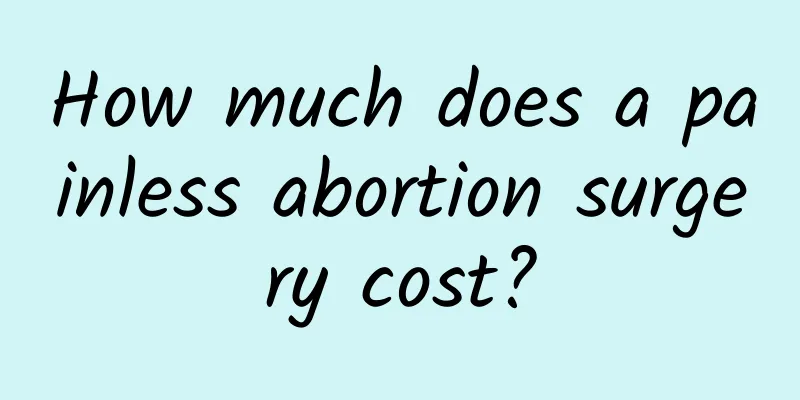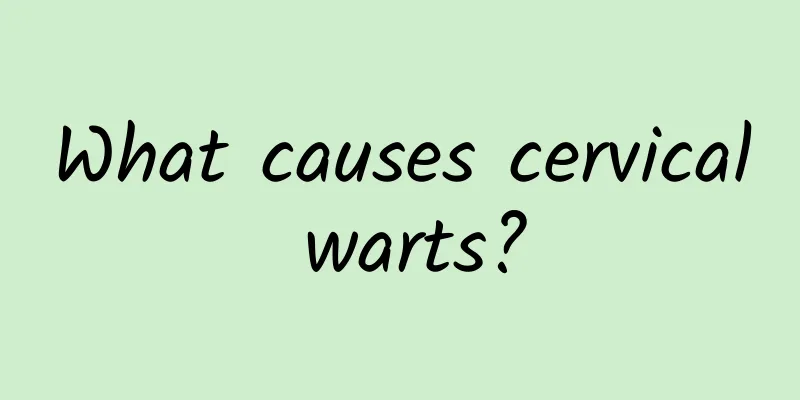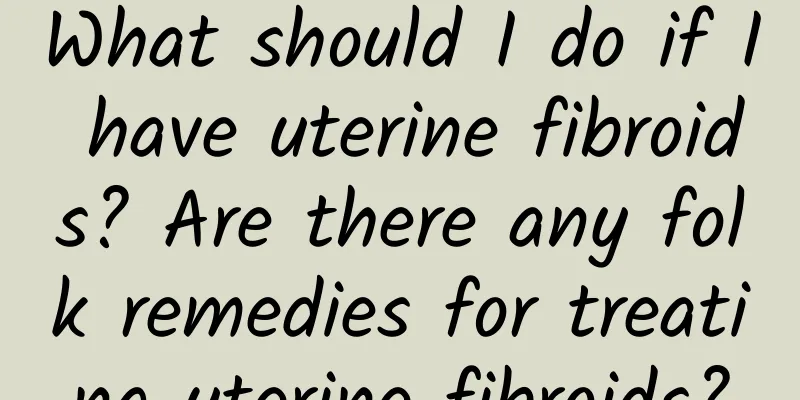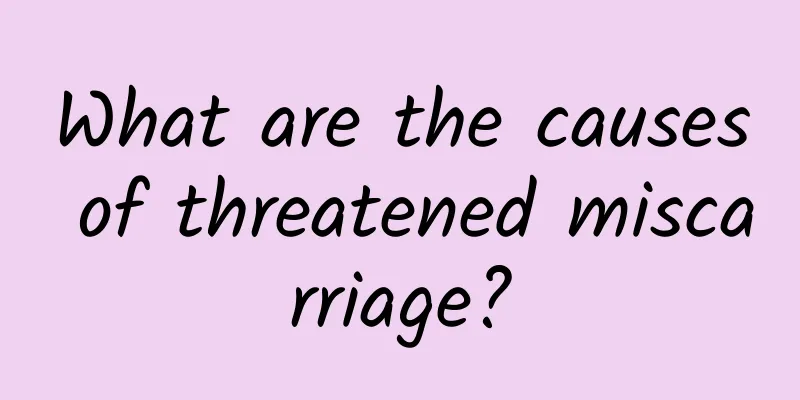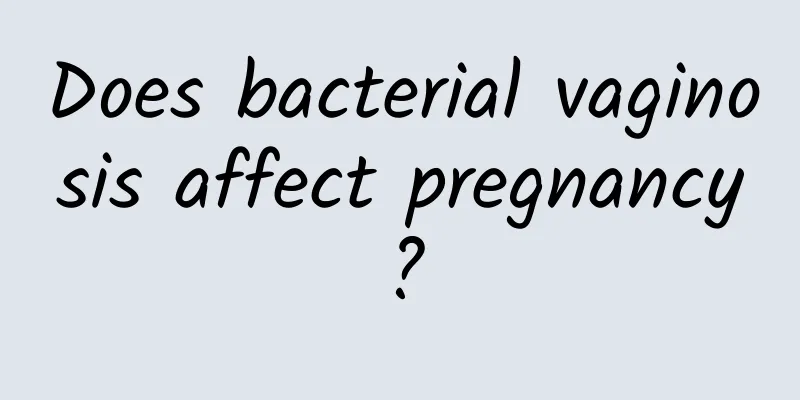Can drinking coffee cause esophageal cancer? Nutritionist Gao Minmin: The four real cancer killers are…
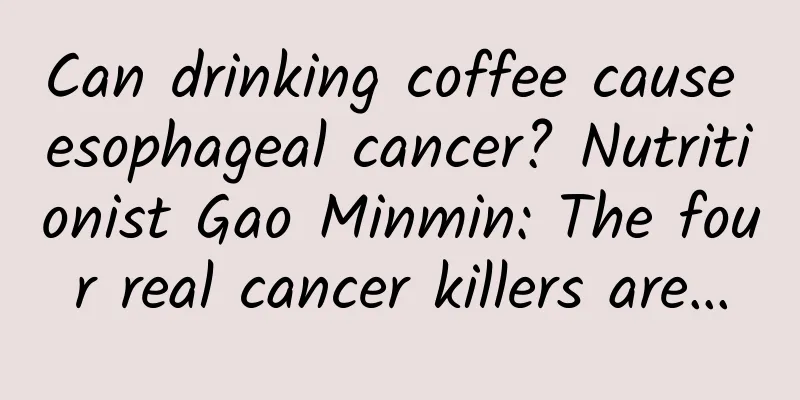
|
Esophageal cancer, known as the "king of cancer", is a serious cancer. It is often associated with smoking and alcoholism, and is closely related to eating habits. There is a rumor circulating on the Internet that "drinking coffee can cause esophageal cancer", which makes people worry about the truth. In addition to this legend, it was also widely circulated on the Internet: "Intake of more than 500 mg of caffeine per day can easily lead to breast fibrocystic disease and breast cancer." Can drinking coffee really cause these two cancers? Let’s listen to nutritionist Gao Minmin’s analysis. The three biggest killers of esophageal cancer: champagne, pennyroyal, and wineWhat are the risks of esophageal cancer? Esophageal cancer can be divided into two categories: one is esophageal squamous cell carcinoma, and the main known risk factors are "ABCD", namely drinking, eating betel nuts, and smoking (commonly known as incense, betel nuts, and wine); the other is esophageal adenocarcinoma, and the risk comes from long-term gastroesophageal reflux, which causes epidermal degeneration and cancer, as well as Barrett's esophagus, which is unfamiliar to most people and can also cause precancerous lesions and develop into esophageal adenocarcinoma. To prevent esophageal cancer, we must first avoid the above-mentioned risk factors, especially not smoking, drinking and chewing betel nuts. This is not only an important key to preventing esophageal cancer, but avoiding these three hobbies can also prevent the occurrence of many cancers. In addition, eat more vegetables, fruits, foods containing vitamin C, etc. to reduce the incidence of esophageal cancer. Coffee itself does not cause cancer, so avoid drinking it at "too high a temperature"As for, does drinking coffee really cause esophageal cancer? Nutritionist Gao Minmin said that according to the International Agency for Research on Cancer (IARC) under the World Health Organization (WHO), a team of 23 top scientists from 10 countries around the world was formed in recent years to review more than 1,000 research reports in the past. After making a major statement, the World Health Organization has removed coffee from a Class 2B carcinogen and downgraded it to Class 3 (cannot be classified as a human carcinogen)! However, the World Health Organization stated that although coffee itself does not cause cancer, long-term drinking of "too high temperature" coffee may be related to certain cancers. The World Health Organization said that although coffee itself does not cause cancer, drinking "too high temperature" coffee for a long time may be related to certain cancers. It's not that coffee causes cancer. Hot drinks above 65 degrees Celsius have a risk of cancer.There is not enough evidence that coffee may cause cancer, and other scientists have pointed out that drinking "too hot (>65 degrees C)" is one of the causes of cancer, not the drink itself. Generally speaking, the esophagus can tolerate temperatures below 60 degrees Celsius. If you frequently drink scalding beverages above 65 degrees Celsius, you may directly burn the epidermal mucosal cells of the esophagus. Repeated burns, inflammation, and scabbing can easily lead to mucosal tissue lesions and may cause esophageal cancer. [Nutritionist’s Tips]: Nutritionist Gao Minmin said that to prevent esophageal cancer, in addition to avoiding overly hot and rough foods, you should also pay attention to chewing slowly and not eating too fast. You should also avoid excessive drinking and smoking to reduce irritation and damage to the esophageal mucosa. The fundamental way to stay healthy is to start with diet and lifestyle habits. Let’s look at another rumor on the Internet: “Consuming more than 500 mg of caffeine a day can easily lead to breast fibrocystic disease and breast cancer.” Breast fibrocystic disease is a benign change in breast tissue, a non-malignant lesion. Therefore, under normal circumstances, there is probably no concern about cancer. According to a systematic review published in 2013 on the relationship between caffeinated foods such as coffee, chocolate, and tea and breast diseases, it was also pointed out that excessive caffeine intake has no relationship with the formation of breast fibrocystic lesions and breast cancer. Carcinogens are divided into 4 levels representing foodThe International Agency for Research on Cancer (IARC) classifies carcinogens into the following four levels from severe to mild based on the sufficiency of research evidence: 【Level 1: Determined to be a carcinogenic factor】 Examples include tobacco (smoked or chewed), betel nut, formaldehyde, diesel engine exhaust, asbestos, mustard gas, gamma rays. [Class 2A: Highly likely to be a human carcinogen] For example: sun lamps, ultraviolet radiation, substances released by high-temperature frying. [Class 2B: Possibly a human carcinogen] For example: styrene, gasoline engine exhaust, welding fumes, extremely low frequency electromagnetic waves (for childhood leukemia). 【Level 3: Not classifiable as a human carcinogen】 For example: coffee, toluene, ampicillin (a type of penicillin), hypochlorite. [Level 4: Highly likely to be a non-human carcinogen] For example: caprolactam (intermediate raw material for synthesizing nylon plastic). |
Recommend
Experts introduce the early symptoms of cervical erosion
I believe many people have this question. Many of...
Can female cervicitis lead to infertility? What are the causes of female cervicitis leading to infertility?
In real life, there are many women suffering from...
Why does endometrial thickening always recur?
Thick endometrium is a gynecological disease with...
What are the symptoms of adnexitis?
Adnexitis is a common type of gynecological infla...
2 Dietary Guidelines for Patients with Irregular Menstruation
Irregular menstruation is a common gynecological ...
What are the main symptoms of adnexitis?
What are the main symptoms of adnexitis? Experts ...
Does mild cervical adhesion need to be treated?
Whether or not minor cervical adhesions need to b...
Can ovarian cysts be cured?
Can ovarian cysts be cured? Malignant ovarian cys...
What are the early symptoms of ovarian cysts?
What are the early symptoms of ovarian cysts? Are...
What is the cause of breast pain around 13 days after menstruation?
What is the cause of breast pain around 13 days a...
Nursing measures for uterine effusion in daily life
What are the nursing measures for uterine effusio...
Etiological classification of patients with hyperprolactinemia
In daily life, we need to pay attention to hyperp...
What should you pay attention to after menopause
What should I pay attention to after menopause? A...
Crazy treasure hunting every day, office ladies get fat! Famous weight loss doctor: for decreased concentration
If you are keen on catching Pokemon, be careful n...
How to check after suffering from adnexitis?
How to check if you have adnexitis? This is a que...

